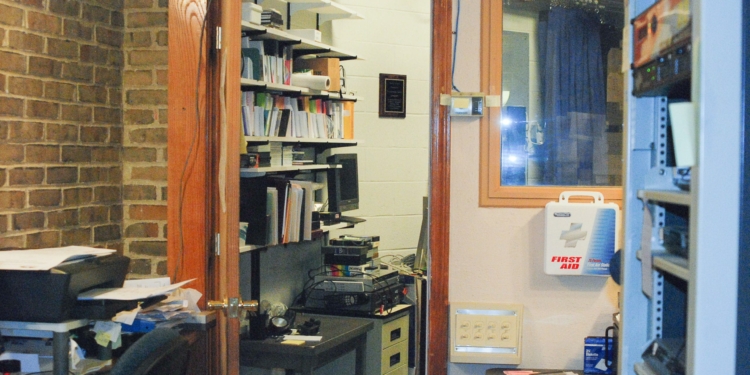BETHLEHEM — After deciding not to pursue a potential partnership with Open Stage Media (OSM) in Schenectady, the Bethlehem Public Library Board of Trustees is considering how to move forward with BCN-TV, the town’s public access, education and government (PEG) channel.
During the monthly meeting of the Bethlehem Public Library Board of Trustees in August, Library Director Geoff Kirkpatrick proposed making changes to the free BCN-TV programming that appears on channel 18 for Charter/Spectrum customers and channel 28 for Verizon FiOS customers. At the time, he said he would like to consider eliminating the public access programming for those channels altogether.

Under Kirkpatrick’s proposal, while the channels would still air town government and school district programming, independently produced public access programs would no longer be viewable on cable television. Public access producers would still be able to use library equipment to create their various programs for distribution online, but they would no longer appear on the cable channels provided for PEG programming in Bethlehem.
Community members who spoke during the August meeting — many of whom produce programs — were concerned about the loss of an established community resource and about population segments, primarily the elderly, who may not have the same access to online media and represent a large portion of BCN-TV viewership.
According to Kirkpatrick, the proposal was motivated by challenges currently facing the library’s production department, which is located just inside the building’s main entrance, in two small rooms that house the actual studio and an office/workspace for studio staff.
The limited space is one of the reasons he cited for making changes. Another was the resignation of a part-time studio employee, leaving Janice Irwin as the studio’s only full-time production manager. Rather than replace that employee, which would still leave the studio understaffed, he has suggested implementing a certification program that would train library users to operate the available equipment themselves, and allow them to digitally publish their content anywhere online.
Capital costs for things such as equipment are generally covered by a small PEG programming fee charged to town residents by cable service providers. All other costs, such as staffing, administration, operational and utility costs, and other ongoing support, are borne by the library. Those expenses, when viewed in the context of the library’s long range plan, are another part of the reason that Kirkpatrick said he would like the board to consider ceasing or amending the service, which BPL has provided for 20 years.
Frank DeSorbo, producer of the program ‘Veterans Next Door,’ said he didn’t understand how the board passed a budget in mid-May — presumably with funds to continue the program — and is now considering eschewing the part-time position altogether, as well as passing up the PEG funding that will be lost if the board votes to implement Kirkpatrick’s proposal. (The library would still receive funding for cable-casting and to produce the community bulletin board.)
Currently, the board is looking at three different options: changing nothing; Kirkpatrick’s proposal to move public access programming off the cable channels entirely and implement a “makerspace” production model for those who would still like to distribute content online; and a middle-of-the-road option that would continue broadcasting all programming on cable, but replace the current production model with the makerspace model, which would allow producers to create their own content without editing and production services currently provided by library staff.
The last option, said Town Comptroller Michael Cohen, could represent a good compromise for the community. “The Makerspace equipment,” he said, “which they seemed likely to purchase in any scenario, could be paid for with PEG funds simply by allowing the content produced on the equipment to be broadcast on the channel. This choice is beneficial to the library because they wouldn’t have to be as heavily staffed, saving operational funding, beneficial to the general public because we continue to receive locally produced content and beneficial to the users of the Makerspace because they can place their content on television (anybody can put their video on the internet, but there is something about watching yourself or your content broadcast on TV). The downside of the choice is the loss of Janice Irwin in the studio, including the provision of free editing for local content.”
The scrapped OSM proposal, said Cohen, didn’t make sense because the town would have to use PEG funding to pay for a service that local cable providers are already required to provide for free and there is no guarantee that the town would continue to receive adequate funds to cover the cost in future years. Even if the town dropped BCN-TV altogether, Charter/Spectrum and Verizon would still be required to provide the public access station. “It wouldn’t be the same however,” said Cohen. “They will simply take a submission and broadcast it along with all other community’s content.”
When the Board of Trustees meets on Monday, Nov. 13, members will review each of the options and hopefully identify one they prefer, said Board President Mary Redmond. A public forum is expected to be scheduled in late November or early December and the board hopes to take a final vote at its December meeting.




